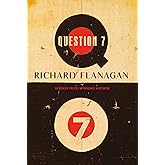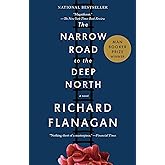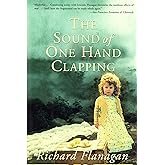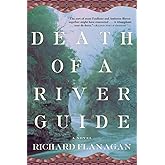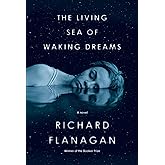
Amazon Prime Free Trial
FREE Delivery is available to Prime members. To join, select "Try Amazon Prime and start saving today with FREE Delivery" below the Add to Cart button and confirm your Prime free trial.
Amazon Prime members enjoy:- Cardmembers earn 5% Back at Amazon.com with a Prime Credit Card.
- Unlimited FREE Prime delivery
- Streaming of thousands of movies and TV shows with limited ads on Prime Video.
- A Kindle book to borrow for free each month - with no due dates
- Listen to over 2 million songs and hundreds of playlists
Important: Your credit card will NOT be charged when you start your free trial or if you cancel during the trial period. If you're happy with Amazon Prime, do nothing. At the end of the free trial, your membership will automatically upgrade to a monthly membership.
Buy new:
-30% $19.31$19.31
Ships from: Amazon Sold by: Always Best Dealz LLC
Save with Used - Good
$8.39$8.39
Ships from: Amazon Sold by: ZBK Wholesale

Download the free Kindle app and start reading Kindle books instantly on your smartphone, tablet, or computer - no Kindle device required.
Read instantly on your browser with Kindle for Web.
Using your mobile phone camera - scan the code below and download the Kindle app.



 Audible sample
Audible sample Follow the author
OK
Gould's Book of Fish: A Novel in 12 Fish Hardcover – April 1, 2002
Purchase options and add-ons
- Print length404 pages
- LanguageEnglish
- PublisherGrove Pr
- Publication dateApril 1, 2002
- Dimensions5.25 x 1.25 x 9 inches
- ISBN-100802117112
- ISBN-13978-0802117113
Book recommendations, author interviews, editors' picks, and more. Read it now.
Customers who viewed this item also viewed
Editorial Reviews
Amazon.com Review
From Publishers Weekly
From Library Journal
Copyright 2002 Cahners Business Information, Inc.
From Booklist
Copyright © American Library Association. All rights reserved
Product details
- Publisher : Grove Pr; First Edition (April 1, 2002)
- Language : English
- Hardcover : 404 pages
- ISBN-10 : 0802117112
- ISBN-13 : 978-0802117113
- Item Weight : 1.58 pounds
- Dimensions : 5.25 x 1.25 x 9 inches
- Best Sellers Rank: #808,932 in Books (See Top 100 in Books)
- #8,655 in Contemporary Literature & Fiction
- #8,770 in Family Saga Fiction
- #40,597 in Literary Fiction (Books)
- Customer Reviews:
About the author

Richard Miller Flanagan (born 1961) is an Australian novelist from Tasmania. "Considered by many to be the finest Australian novelist of his generation", according to The Economist, each of his novels has attracted major praise and received numerous awards and honors. He also has written and directed feature films. He won the 2014 Man Booker Prize.
Bio from Wikipedia, the free encyclopedia. Photo by AUrandomhouse (Own work) [CC BY-SA 3.0 (http://creativecommons.org/licenses/by-sa/3.0)], via Wikimedia Commons.
Customer reviews
Customer Reviews, including Product Star Ratings help customers to learn more about the product and decide whether it is the right product for them.
To calculate the overall star rating and percentage breakdown by star, we don’t use a simple average. Instead, our system considers things like how recent a review is and if the reviewer bought the item on Amazon. It also analyzed reviews to verify trustworthiness.
Learn more how customers reviews work on AmazonCustomers say
Customers find the book's narrative wild and engrossing, with one review noting its skillful weaving of quintessentially Australian storytelling. The writing is well-executed with eloquent language, and customers appreciate its creativity, with one highlighting its fabulous watercolors of sea life. Moreover, the characters are fully realized, and customers describe the book as rich. However, the readability receives mixed reactions, with some finding it fascinating while others say it's hard to follow.
AI-generated from the text of customer reviews
Select to learn more
Customers enjoy the narrative style of the book, describing it as wild, engrossing, and intriguing, with one customer noting its skillful weaving of an Australian story.
"...The only logical conclusion that the reader can draw in this supremely surreal novel is that there is no art, or life, without suffering...." Read more
"The authors effort doubtlessly should be rewarded for its unusual and creative form and it's ability to repulse the reader, but I found the book..." Read more
"This is a highly inventive novel that seems to lose its way halfway through as the author starts throwing in any creative image that comes his way..." Read more
"...34;It was, I must admit, a dreadful hodgepodge, what with some stories in ink layered higgledy-piggledy over others in pencil, and sometimes vice..." Read more
Customers praise the writing quality of the book, noting its eloquent language and well-crafted prose, with one customer highlighting its use of archaic regional slang.
"...The startling, eloquent language Flanagan employs to outline the savagery of this most infernal place is one of the book's many strengths...." Read more
"...He's witty, expansive, loveable, colorful and as dimensional as they come...." Read more
"...It mixes a densely old-fashioned, elevated style with archaic regional slang, scatology, and occasional flights of gorgeous modernist fancy...." Read more
"...However, although the writing itself was good, I never could get into the story partly because there wasn't a character I could like in the book...." Read more
Customers appreciate the book's creativity, describing it as pure and beautiful, with one customer highlighting its fabulous watercolors of sea life.
"...vile crap that comes out of my body these days ... my blood is really quite pure & beautiful, & it reminds me that something is always pure &..." Read more
"...It has all the elegance and eloquence of the language of its times while retaining a sense of intimacy and immediacy...." Read more
"...He's witty, expansive, loveable, colorful and as dimensional as they come...." Read more
"...authors effort doubtlessly should be rewarded for its unusual and creative form and it's ability to repulse the reader, but I found the book..." Read more
Customers appreciate the character development in the book, noting the fully realized characters, with one customer describing them as unforgettable.
"...He's unforgettable, as are several of the other characters in the novel, most notably the penitentiary surgeon, Mr. Lempriere, in his passionate..." Read more
"...It has it all: hilarity, violence, eroticism, humanism; commentary on art, colonialism, recorded history, and (I'm sure) a hundred other things that..." Read more
"...Flanagan's is a classic and fully realised character. The setting is masterful, crusted with the salt of the sea...." Read more
"...The writing is raw and powerful, the characters unforgettable, even while you are never sure exactly what (or when) you are...." Read more
Customers appreciate the depth of the book, describing it as rich and impressive.
"...The list is rather impressive and includes Joyce, Melville, Conrad, Rabelais, Borges, Hemingway, Marquez, Swift, Morrison, Pynchon, Sterne, Dante,..." Read more
"Rich, deep, complex, gripping, astounding, can I add a hundred other adjectives? I would but you wouldn't believe me...." Read more
"A rich, enigmatic work..." Read more
Customers have mixed opinions about the book's readability, with some finding it a fascinating and fabulous read, while others mention it is hard to follow.
"..."Gould's" is a good book to experience with a buddy -- providing your buddy is of stern constitution and not easily repulsed...." Read more
"...So this is a book about a book. And from the outset, Flanagan's writing makes it a triumph of revelation and humanity...." Read more
"...This is just such a work. As T.S. Elliot noted, great literature also connotes, contains and reexpresses the great literature of the past...." Read more
"...It wanders all over the place with wild exaggerations and nonesense. Some of it is fun but not for 420 pages...." Read more
Top reviews from the United States
There was a problem filtering reviews. Please reload the page.
- Reviewed in the United States on September 2, 2014"My wonder upon discovering the 'Book of Fish' remains with me yet."
Richard Flanagan's opening line may resonate with readers as they polish off the final sentence of his novel "Gould's Book of Fish."
The "Book of Fish," a book within the book, is discovered in a junk shop by Sid Hammet, an amiable con man in Tasmania, who makes a sort of living ("if it wasn't that good, nor was it all that bad") bilking porky American tourists by selling them old crap marketed as "antiques."
Digging through a pile of ratty-tatty women's magazines, Hammet finds a book that positively glows, I tell ya -- a frenzied narrative interspersed with fabulous watercolors of sea life. Upon opening this dizzying mad rush of a book, Hammet is hooked!
"It was, I must admit, a dreadful hodgepodge, what with some stories in ink layered higgledy-piggledy over others in pencil, and sometimes vice versa. Upon running out of space at the end of the book, the writer seemed to have simply turned it around and, between the existing lines, resumed writing -- in the opposite direction and upside down -- more of his tales. ... The sum of such chaos was that I seemed to be reading a book that never really started and never quite finished."
He takes his find to be appraised by historians and publishers and experts who judge the book a very colorful fraud -- a fish story, as it were -- "the insignificant if somewhat curious product of a particularly deranged mind of long ago."
That mind belongs to William Buelow Gould, a convict sentenced to Van Diemen's Land. Some of you may recognize from imperial history the name of an infamous British prison colony. Some of you may have just heard the U2 song.
Gould's story becomes an obsession for Hammet, who persists in trying to get it recognized in the face of derision, critical abuse and drubbings at the pub. Then, just like the one that got away, the "Book of Fish" is gone, vanished from the bartop where Hammet left it on a trip to the toilet. Meaningful to no one but him, the story bubbles and boils in Hammet's fevered brain until he sets out to re-create the "Book of Fish" from memory. This tale, filtered through the perspective of two madmen (three if you count Flanagan), is slightly divergent from the history of Gould you'd find on the Wikipedia (which never lies).
Gould arrives in Van Diemen's Land in the 1800s, condemned not to a relatively quick death by hanging but to a relentless life in hell. The prison shipyards are ruled by the Commandant, driven mad by a prodigious intake of mercury, laudanum and opium and by an ambition "as enormous as his appetites, both dietary & carnal, & it was no less than the creation of a nation that would have as its heart the city-state he was already building the foundations for, with him for its Father." The Commandant's port settlement is populated by lunatics, grotesques and the scum of England forced into slave labor.
In his leisure time, when he's not being beaten or half-drowned in his seaside cell below the high water mark, Gould writes about his life in bondage. "It had simply become a bad habit, as inescapable & as wretched as scratching my licy balls."
Such accounts by convicts are forbidden by law and risk savage punishment. Using purloined bits of paper and blood picked from his own scabby flesh, Gould creates his defiant art. "If I had a bottle of good Indian ink, I'd be a hell of a lot happier, & in somewhat less pain. On the other hand, mine is far from a black & white story, so perhaps putting it down in a scarlet fashion is not so inappropriate. Please don't be appalled, compared to most of the vile crap that comes out of my body these days ... my blood is really quite pure & beautiful, & it reminds me that something is always pure & beautiful, if you will just look beneath the scabs & sores."
Gould is allowed by his captors to paint. He shows a certain talent for artistic forgeries that can be exported and sold and for still lifes that British officials can present to their mistresses as gifts. And for fish: In his painting, Gould finds subtle, undetectable ways to reflect the horrors of his surroundings. His piscine portraits express "my own fear at this cracked world in which I & they & everything was trapped."
Gould's work catches the eye of Tobias Achilles Lempriere, a corpulent, grub-like surgeon who appreciates the "scientifick" detail. The Surgeon recruits Gould in an effort to catalog Nature, starting with the fish, in preparation for that grand day when science supplants art and assumes its rightful supremacy in the mind of enlightened man.
Gould guzzles the Surgeon's rum and nods a lot.
"It sounded suspiciously like an attempt by the Surgeon ... to recreate the natural world as a penal colony, with me, the gaoled, now to play the part of turnkey. Still, I had had worse offers."
But Gould finds his assignment taking on a personal meaning. It's more than a means to escape arbitrary floggings. He begins to take the job seriously, at least the artistic aspects of it. He's making an honest effort to capture the essence of fish.
As Gould's talents develop, the Commandant's insanity progresses:
"The more he advanced in his belief in his manifest destiny, the more he declined in the practice of sense. His talk became of impossibilities -- of building a temple of odours; of lifting the Penitentiary into the air by the power of levitation, so escape would be impossible except in balloons; of developing mesmerism as an offensive weapon for his army by raising a regiment of spiritualists who would stand in the front row of great battles willing the other side to lose."
The Commandant borrows Gould from the Surgeon to record in a series of elaborate murals the glories of the Commandant's would-be empire. While sidelined from his fish study, the Surgeon loses his spirit for the project (along with some other beloved equipment), turning instead to the harvesting of Aboriginal heads for study.
But Gould can't let the fish go. The painting of sea life is no longer a simple shelter against sadism. Gould's art has become an obsession, an essential -- and endlessly frustrating -- sustenance.
"The more I looked at those sad creatures, still dying, the occasional mortal flap of the tail or desperate heave of the gills signaling their silent horror was not yet ended, the more I looked into the endless recesses of their eyes, the more something of them began to pass into me" while "some small part of me, without me willing it, was beginning a long, fateful journey into them!"
His painting is his life, the only thing he has left, the only thing he cares about. And in this setting of merciless suffering, an awakening of passion through art is dangerous, perhaps even deadly.
"I knew in order to survive & prosper it was important to feel nothing for anyone or anything, & I knew I wanted to survive & prosper. But because of my newfound proximity to what hitherto had been little more than stench wrapped in slime & scale, I began to dream that there was nothing in the extraordinary universe opening up in front of me, not a man or woman, not a plant or tree, not a bird or fish, to which I might be allowed to continue remaining indifferent."
"Gould's" is a good book to experience with a buddy -- providing your buddy is of stern constitution and not easily repulsed. Flanagan is so clever and puckish in his wordplay that there are passages that could be read one way or could be read another and were probably intended to support multiple interpretations.
"As with the skin of a bastard trumpeter caught at night, the book's cover was now a mass of pulsing purple spots."
That sentence may bring to mind a "Jackass"-type prankster/musician thrashed black and blue by a mob of angry, interrupted slumberers. But there is also a trumpeter fish that glows purple in the dark. Shakespeare, an incorrigible punster, might have liked that one.
And even if all of us in the audience are wrong, it's all part of the natural process of writing and reading.
"A book at its beginning may be a new way of understanding life -- an original universe -- but it is soon enough no more than a mere footnote in the history of writing, overpraised by the sycophantic, despised by the contemporary, and read by neither. Their fate is hard, their destiny absurd. If readers ignore them they die, and if granted the thumbs-up of posterity they are destined forever to be misconstrued."
Gould's plight as an artist goes beyond mere miscommunication issues. His account flies in the face of an unassailable official record that praises the European conquerors for their compassion, nobility and the unflagging, saintly patience required by the endeavor to enlighten Australia's savages and England's societal dregs. In the only history that counts, the written word -- a great power for liberation -- is malignantly warped to enslave.
Flanagan philosophizes about the simultaneous futility and absolute necessity of artistic expression. Each of us lives in our own little bubble of perception, and no one, no matter how intimate, sees the outside world exactly the way we do. Or sees us the way we see ourselves. Art -- imperfect, open-to-interpretation-by-idiots art -- is perhaps the best bridge between bubbles that we have. As badly as I believe I've fumbled this review, I kept writing. I've failed to convey how exciting and special (and heinously gruesome) this book is, but I had to take a shot at it in the hopes of luring new readers for Flanagan to shake and shock and amaze and engage. Some of us feel a compulsion to communicate that's unsatisfied by a click of the Like button or an emoticon. Often such communication is a failure.
But we keep casting our lines.
"Maybe we have lost the ability, that sixth sense that allows us to see miracles and have visions and understand that we are something other, larger than what we have been told." -- Richard Flanagan by way of Sid Hammet (or maybe it's the other way around)
- Reviewed in the United States on October 8, 2004What could anyone have done to deserve the fate of William Buelow Gould? The worst that can be said of his character in "Gould's Book of Fish" is that he makes a habit of living on the wrong side of fate. From his random and illegitimate birth to an Irish maid and a Jewish laborer in the early 19th century, through his routine incarcerations for the most ridiculous non-offenses, he stands as a symbol the pain, brutality and aching beauty of his times.
From the book's outset there's a sense of evanescent, transformative magic amid the menace of William Gould's life.
He speaks to the reader first through the ministrations of a devoted, twentieth century seeker of beauty, who finds Gould's original autobiography, a collection of obsessive scribblings and startling icthyological illustrations, stuck in the prison of an antique chest in a junk shop. When the book is mysteriously lost, its bereft and obsessed owner sets out to recreate the work with the extra authenticity of a disciple's devotion.
So this is a book about a book. And from the outset, Flanagan's writing makes it a triumph of revelation and humanity. This is no small task, considering that the bulk of William Buelow Gould's star crossed existence takes place on Sarah Island, Tasmania's own answer to the Devil's Island of Papillon fame. The startling, eloquent language Flanagan employs to outline the savagery of this most infernal place is one of the book's many strengths. It has all the elegance and eloquence of the language of its times while retaining a sense of intimacy and immediacy.
William Buelow Gould's life a riot of debacles that go well beyond Rabelaisian levels of debasement. His tormentors include the colony's Commandant, who, under an assumed identity, sets out to create a Potemkin village of European enlightenment amidst the insanity of his own being and environs; the physican, who meets with a undignified gustatory end at the hands of his monstrous pet pig; and the guard, with whose corpse, through a series of bizarre and surreal events, he shares a cell that fills with water at the coming of the high tide.
Taken under the wing of the physician, Gould's artistic talents are put to work in the service of a primitive form of eugenics. He's commissioned to create a book of fish to rival the one of birds by the celebrated Audubon, the better to raise the esteem of the physician among the men of science towering over the enlightment at home. Through his compliance, Gould finds a way to transform himself, and his world, in a way that defies all the evil that humans can foment.
The only logical conclusion that the reader can draw in this supremely surreal novel is that there is no art, or life, without suffering. Few literary characters have suffered as much for art as William Buelow Gould. And fewer modern authors have created an historical novel with so much mystery, color, and wisdom.
- Reviewed in the United States on September 9, 2014I thought it was time to read something by this prolific author and where better to start than with his big best seller. Hmmm. It is a book written to critics, reviewers, and other writers, not for readers like me. The promotional descriptions are accurate. It wanders all over the place with wild exaggerations and nonesense. Some of it is fun but not for 420 pages. The first chapter on the discovery of the old manuscript is best. Love the University of Tasmania professor, so pompous and self-important that I was sure I knew him, and so utterly forgettable and forgotten a minute later. Some of the other characters were vivid but not sustained or developed to my jaded eye.
But no narrative drive, no movement. Comparison to Toni Morrison above may be apt as I found the two novels of hers I tried to read went nowhere fast.
Top reviews from other countries
 djtaylor65Reviewed in the United Kingdom on December 6, 2024
djtaylor65Reviewed in the United Kingdom on December 6, 20245.0 out of 5 stars Billy Gould who’s name is a song that will be sung
This is my third Richard Flanagan novel. It’s another completely different 5 Stars.
Transported into the world of prisoner 873645, William Buelow Gould who’s name is a song that will be sung, and his painting of the fish whom he told all about himself being a bad bastard who forged himself anew as a worse painter, but a painter nonetheless. And whose paintings of fish were not meant for science or Art, but for people, to make them think, give them company and hope and remind them of those they had loved and those who loved them yet , beyond the ocean…So much food for thought here and clever, clever on so many levels . Awsome.
 margaret visciglioReviewed in Australia on December 1, 2014
margaret visciglioReviewed in Australia on December 1, 20145.0 out of 5 stars The writing is amazing in its scope
An astonishing book lurches from the story of a chap who is engaged in counterfeiting old furniture for sale to American tourists who visit Hobart to the story of a convict who is counterfeiting Constable paintings at the order of a brutal prison orderly. The convict and his fellow prisoners are subject to brutal treatment at the hands of the authorities. The story becomes Kafkaesque in its scope as the Commandant sets out to build a city on a small island using slave labour and funds derived from plundering the resources of the island-the trees are felled, the guano mined, the whales slaughtered. I felt the author was using this small island off the coast of Tasmania as an analogy for the desecration of the planet as the forests and wildlife are ruthlessly sold off for gain. The writing is amazing in its scope, dazzling in its execution and the unbelievable becomes believable. The fate of the indigenous people whose heads are shipped to London for anthropological research is devastating. Human life is held cheap on this island and it is almost a relief when the protagonist is dead and transmuted into a sea-horse. Not an easy book to read, but I recommend it as an extremely worthwhile endeavor. And there are occasional flashes of black humour which provide much needed respite from the darkness. One is left shattered but enthralled. I have bought Flanagan's Narrow Road to the Deep North but will refrain from reading it until I have recovered my equilibrium.
 jsReviewed in Germany on April 22, 2016
jsReviewed in Germany on April 22, 20163.0 out of 5 stars Weird
But don't let the weirdness distract you, this is definitely worth reading. Surrealistic imagery, intriguing story. There's something fishy in here.
-
 "パラモア"Reviewed in Japan on June 14, 2003
"パラモア"Reviewed in Japan on June 14, 20035.0 out of 5 stars Richard Flanagan: Gould`s Book of Fish
オーストラリアのTasmania州出身Richard Flanagan(The Sound of One Hand Clapping)のCommonwealth Writers Prizeなどを受賞した偽作である。19世紀はじめ英帝国の最もけしからぬ囚人植民地のTasmaniaがステージになり、その時代と今の時代の我々の関連を、魚を描く画家の囚人のストーリを通して、とても多次元的に描くものである。19世紀英帝国の合理主義やいわゆる近代化への道の裏面を描く日本にあるいわゆる「英米文学」には一切見られない植民地の声は、この小説にいままでのオーストラリア文学史に見られていないほどたくみなスタイルにおいて表れている。
イギリスのGuardian紙に「偽作」とよばれ、New York Review of Booksに「この十年間、英語で書かれた小説の中、最も優れている少数のものとして数える」と述べられているように、この本は国際的にとてもよく評判され、出版されてまだ2年が立っていないのに、もう今までドイツ語やスペイン語、フランス語、中国語など20ヶ国語以上に翻訳中あるいは翻訳された。残念ながら(英米文学ではないからかな)まだ日本語に翻訳されていないから、是非何方か読んで翻訳してください。
 MARCUS CLARKReviewed in Australia on October 21, 2015
MARCUS CLARKReviewed in Australia on October 21, 20154.0 out of 5 stars GOULD'S BOOK OF FISH
This is not an easy book to understand or to review. It does not fit into any known genre, there is no mystery in the normal sense; while there are murders, we know who committed them. Is it a love story? Not at all, but the book blurb thinks so. It is an historical novel, but more of a surrealistic history of a penal settlement, overlaid with humour and irony.
The story is told by a felon, Billy Gould who portrays himself as nothing more than a lying rascal, yet he reveals himself in his own words to be educated and moral. If you have read James Joyce's Ulysses, then you might have something to compare this novel with, but few people have actually read Ulysses, (apart from the final section) so there is not much help there. But if you have, then there are definite similarities in the word play, the metaphors, the allusions, the irony.
Gould's Book of Fish -- should you read it -- will probably be the most bizarre book you will read in the next 10 years. Is it worthwhile you ask. Yes, it is worth the effort, because it is an interesting, unusual, poetic, mysterious, amusing, ironic, colourful, novel.
It is set in Tasmania, Australia, around the year 1820 onwards. More precisely, it is set mostly on the tiny penal settlement of Sarah Island. A place where I have visited, although there is precious little left on the island, some bricks that were part of the oven, a ruined building, but almost no evidence. You could walk all over the island and find almost nothing of historical interest.
But according to Billy Gould, a forger, a painter of fish, a man connected with the Commandant, there was a scheme to build the remote, tiny island, into a cosmopolitan city to rival London, complete with a railway; none of which happened in the novel -- or real life.
The characters are all unbalanced, devious, corrupt, brutal, madmen. In between the lines of the story we find historical references to facts about the treatment of the prisoners sent from England, and the massacre of Aboriginals, the indigenous inhabitants.
The basis of the story is that Billy Gould, a felon, thief, forger, was sent from England as punishment for his crimes. Imprisoned, escaped, re-captured, imprisoned and then chosen -- since he had some experience at forgery -- to paint reproductions of all the species of fish in Tasmania. This would raise the status of the Surgeon, when he presented the paintings to the English scientific community, enabling him to join the elite set in London.
Billy Gould sets out upon his task with trepidation, until it gradually becomes an obsession. He appreciates the value of the task as it raises him above the rank of the ordinary prisoners, allowing him to mix with the supervisors, and more importantly gets him off the chain gangs cutting down trees and hauling logs. Even the food was better.
During his period of painting fish, Billy Gould mixes with various officials, and so we are given a view into this surreal, absurd world, of the penal colony.
This is not your average novel, but a mind-expander. Something to enlarge your view of literature, life, injustice. And yes, more interesting and easier to read than James Joyce's Ulysses.
"Then, perhaps overcome with nostalgia for happier times, he gave me a good kicking. Afterwards I assured him he had all the attributes necessary for a successful artistic career, though unfortunately my mouth was too swollen to list them for Pobjoy's benefit: mediocrity; a violent capacity with any potential rivals; the desire not only to succeed but to see your fellow artists fail; gross insincerity; & a capacity for betrayal. Fortune favours folly, I tried to say, but merely succeeded in dribbling some blood & teeth."
First published, 2001
This novel won the 2002 Commonwealth Writers' Prize.







